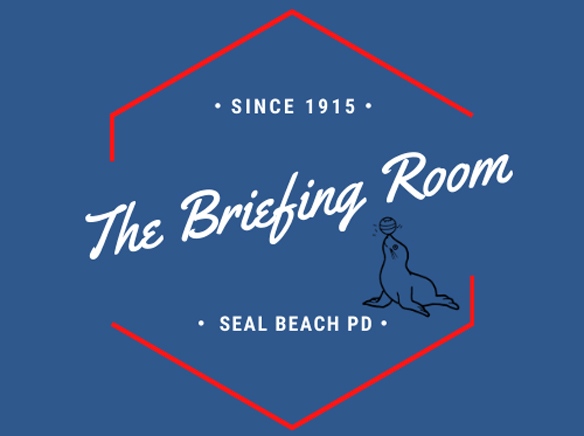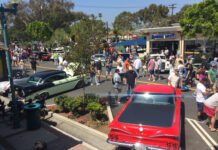By SBPD Capt. Michael Henderson
Greetings Seal Beach,
In this week’s Briefing Room we are going to talk about an important quality of life issue for everyone in Seal Beach—feeding pigeons. We have received complaints that people have started feeding the pigeons near the Pier, the First Street beach parking lot and other locations around Old Town. Many people enjoy feeding and watching wild birds, but they are unaware that they may be causing more harm than good. This might not sound like a law enforcement issue, but it is. The Seal Beach Police Department is tasked with enforcing the laws and keeping order, the stated mission of the SBPD is to “drive down crime and improve the quality of life for the residents and visitors of Seal Beach.” It is a simple and straightforward mission and we embrace this mission in all aspects. Here are some reasons why you should not feed the pigeons;
1. A large population of pigeons is a health hazard. Pigeon droppings dirty public spaces, do costly damage to buildings, and can spread life-threatening diseases, especially to the elderly and immune-deficient. Their nesting materials block drains and harbor parasites like bird mites. Large numbers of pigeons also pose serious health risks to the general public. Pigeon droppings can cause human diseases like Histoplasmosis, Cryptococcosis and Psittacosis. According to Dr. Elizabeth Wood, DVM, from the Wetland and Wildlife Care Center in Huntington Beach these disease also can also affect house pets, particularly cats. A typical pigeon dispenses several pounds of fecal matter per year. Pigeon-related damage costs cities and homeowners for pest control and sanitation, but an even more dire reminder why you shouldn’t feed them are the diseases that can be spread from the droppings.
2. Feeding pigeons promotes overbreeding. Pigeons normally breed two or three times a year. Overfed city pigeons can breed multiple times a year. Large flocks unable to sustain their population suffer from disease and starvation. Pigeon over population leads to overcrowded, unsanitary conditions and produces sick and injured birds. A smaller flock is healthier and does less damage
3. Pigeons are harmed when fed. When you feed pigeons, you are not doing them a favor. They lose their natural ability to scavenge and survive on their own. Bread is not a healthy source of nutrition for birds. White bread contains none of the fats and proteins pigeons need to sustain their daily health and energy. Pieces of bread that are too large can potentially cause digestive blockages. Also, bread left outside quickly develops mold, which makes birds ill. Pigeons are also part of the food chain. Hawks and other predatory birds feed on pigeons.
4. It is illegal. It is a violation of the Seal Beach Municipal Code to feed Pigeons. 7.05.100 (Feeding Wild Birds) states “No person shall feed any wild bird. This prohibition shall not apply to the feeding of wild birds that are confined in an enclosure on private property. “Wild bird” includes pigeons and doves.”
It may seem like it’s helpful to feed the pigeons, but it actually has the opposite effect. Whether you actively feed pigeons or just leave your leftover food on a bench for the pigeons to find, feeding pigeons has serious consequences for the birds and people who use the same spaces. Pigeons have to maintain their natural ability to scavenge and find food for themselves. When they are fed by people, they lose that ability and become dependent on people for their survival. Overfed flocks of pigeons multiply at an unnatural rate. If you have ever had to clean up after pigeons, you would realize if you don’t feed them they will leave and find their own food source! Pigeons are intelligent and will remember if they are fed. They will return and roost and find a place to nest. Eventually, you will be left with the droppings. So Seal Beach—please DO NOT FEED THE PIGEONS!












